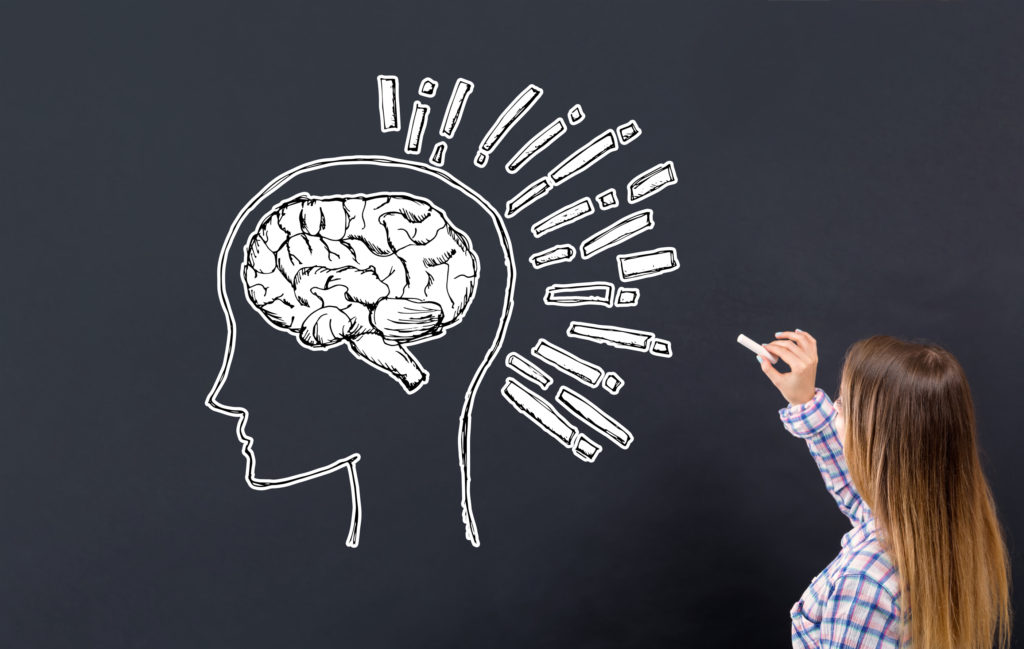Quick Hits
Daily brief research updates from the cognitive sciences

Learning and memory are key functions of the brain and ones that attract a lot of attention and research – and interest from normal folk like us. After all who wouldn’t like to know how to use one’s brain to learn and remember things better.
These two functions are, however, closely related. Memorising things is a part of learning – so are they part of the same process or part of separate processes in the brain? And does this happen in parallel or sequentially?
Most of us would probably assume that they happen in parallel – lots does in the brain – it is pretty complex. Similarly disentangling these processes is difficult – when we go about things in daily life we are drawing on our memories as we encounter familiar things and do familiar processes but when we encounter novel things we then need to learn and this seems to happen seamlessly
Researchers around Ruy Gómez-Ocádiz of the Insitut Pasteur in France have now given insight into this with some pretty innovative research.
For this they transported mice to a virtual world – yup, you read that correctly – researchers are now using virtual reality with mice! I will let you imagination run with that thought. This allows researchers to guide what the mice see and experience with more accuracy and therefore draw firmer conclusions. In this research it allows them to manipulate and distinguish between learning and remembering by transporting them to a whole new world so they can see learning in action.
What did they find?
Yes, they found that there is separate circuit in the brain’s hippocampus that switches between learning or remembering – the hippocampus is a well-researched area deep in the brain that is critical for memory formation but also memory recall and for navigation.
This shows that your brain therefore switches, sometimes rapidly between modes. When you encounter novelty it switches to learning mode and when in familiar territory you are in remembering mode.
And going through this article it probably switched a few times – but hopefully the learning mode also so that you remember this for later!

Andy Habermacher
Andy is author of leading brains Review, Neuroleadership, and multiple other books. He has been intensively involved in writing and research into neuroleadership and is considered one of Europe’s leading experts. He is also a well-known public speaker, speaking on the brain and human behaviour.
Andy is also a masters athlete (middle distance running) and competes regularly at international competitions (and holds a few national records in his age category).
References
Ruy Gómez-Ocádiz, Massimiliano Trippa, Chun-Lei Zhang, Lorenzo Posani, Simona Cocco, Rémi Monasson, Christoph Schmidt-Hieber.
A synaptic signal for novelty processing in the hippocampus.
Nature Communications, 2022; 13 (1)
DOI: 10.1038/s41467-022-31775-6
More Quick Hits
Coffee Makes Business Teams More Effective
Quick HitsDaily brief research updates from the cognitive sciences just couldn’t resist reviewing this piece of research, from a few years ago, after I stumbled across this (likely because some background algorithm had recommended it to me based...
Caffeine Makes You More Prone to Impulsive Buying
Quick HitsDaily brief research updates from the cognitive sciences fascinating piece of research just published shows that drinking coffee makes you more impulsive. That means you are likely to buy more, and more items you actually don’t need....
Healthy Brains Are Hotter Than You Think
Quick HitsDaily brief research updates from the cognitive sciences hen we get sick we get a fever and we all know what our body temperature should be: around 37°C. Too much above that and we have a fever, and too much below and we risk...
Unpredictable Parents Disrupt Brain Circuitry in Children
Quick HitsDaily brief research updates from the cognitive sciences ntuitively we all know that good parenting is essential to kids’ healthy development. We all agree on that. But as soon as we try to define what good parenting is we then enter into...
A New Study on Inter-Brain Synchronisation
Quick HitsDaily brief research updates from the cognitive sciences n case you didn’t know it brain synchronisation (or inter-brain synchronisation) is a thing. And a pretty cool thing. This happens when two, or more, people do similar things...
Unique Social Genes in Human Beings
Quick HitsDaily brief research updates from the cognitive sciences ne differentiating factor with human beings is our pro-sociality. This means we are a social species, and this sociality is seen in our ability to empathise, be socially tolerant,...






